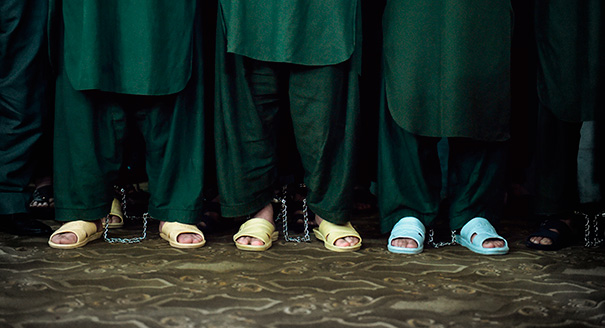Most people agree that judges should set an example for society: they should be open, honest, and under no obligation to anyone or anything but the law. In some countries, judges aren’t searched in airports because it is understood that they are model citizens in every aspect of life.
This is not the case in Russia. As we saw recently in Irkutsk, when a drunk judge gets behind the wheel, it isn’t the judge who is punished but rather the police officer who booked him. Not all judges are like that, but they certainly would be able to get away with bad behavior if they wanted to.
Judges are among the highest paid people in Russia’s vast state apparatus. In addition to their annual salaries, judges receive bonuses for each year served and for additional qualifications they attain. In a country where the average monthly wage hovers around 40,000 rubles ($700), federal judges do quite well: they earn between 150,000 and 170,000 rubles ($2,620–2,970) per month, not including bonuses, incentives, and other payments. While judges in some countries make more, Russia is the only country in the world to provide free housing to its judges.
But that’s not even the best thing about being a judge in Russia: judges who work for more than twenty years receive pensions amounting to 80 percent of their working salary plus an extra percentage point for each additional year served. Judges who have worked for less than twenty years also receive healthy financial support if they retire at a pensionable age—even if their twenty years of service were not all spent on the bench.
This is all to say that even retired judges are extremely well remunerated in Russia. Still, there is a commonly held belief that Russian judges take bribes—that there are “fixers” who bring money to judges and receive friendly verdicts in return. That happens, of course, though most illegality takes on another form: judges work closely with prosecutors’ offices and law enforcement agencies, meaning “issues are solved” before cases ever go to court, where there is no such thing as an acquittal: the current acquittal rate is 0.36 percent, which is within the margin of statistical error.
If a defendant is acquitted or is able to negotiate a deal for a suspended sentence, he must remember that there are higher judicial instances: prosecutors’ offices can contest judges’ rulings, and higher courts can overrule verdicts. The case of Moscow Region bureaucrat Lev Lvov, who was sentenced for attempting to take a bribe, exemplifies how the system works. Lvov was fined almost 1 billion rubles ($17.5 million), but never paid a cent: prosecutors requalified his charge in a subsequent hearing and he was released from prison. Everything was done completely legally; later the higher court overruled the release, but to no avail. Lvov was never to be seen or heard from again.
In general, however, bribes aren’t as prevalent in the judicial sphere as most people think. Judges do well enough financially without corruption; only the most reckless judges engage in quid pro quo cash exchanges.
Although they don’t always take bribes, Russian judges are often working for or with the Federal Security Service (FSB). Some are salaried FSB employees, while others work on a contract basis. Keeping an eye on judges and having a file of compromising materials “just in case” is also regarded as de rigueur in prosecutors’ offices.
Russia’s judicial system is a bureaucratic machine whose aim is prolonging its existence and expanding its reach, which is why reforms have failed so miserably over the last twenty years. Courts of appeal and arbitration have been introduced, as have justices of the peace and assistant judges (which are much like law clerks in the American legal system). But rather than bringing about reform, these changes have bloated the judicial bureaucracy.
Nonetheless, the system suffers from a lack of capacity. Why do judges never acquit? One could list any number of reasons, including administrative stress, and pressure from law enforcement agencies and prosecutors’ offices. But the most important thing is judges’ reluctance and inability to really understand cases.
A court is often more about procedure than justice. Even in countries with good judicial systems, getting justice in court can be complex for procedural reasons—and all the more so in Russia. Rather than taking cases, Russian judges initially dismiss them on procedural grounds, and often without justification. This creates more work upon appeal, dragging out cases and allowing for more money to change hands.
If judges acquitted suspects at the outset rather than dismissing them later on procedural grounds, far fewer cases would end up in court: Judges’ dockets would be cut by as much as 30 percent, reducing the number of employees in the system and the amount of state funding for the judicial branch. This is a clearly understood phenomenon in Russia: if you only use 90 percent of the money allocated to you, your budget will be reduced the following year.
And so the money is spent on other things. People from courts and prosecutors’ offices might get together in the banya with friends who manufacture wrought iron railings. And then, a month later, the court signs a contract with the iron manufacturer’s firm to put railings around the court that nobody really needs, until everything is surrounded by railings.
It’s the same with court interpreters, stationery, garages, IT support, and even robes—and it’s the same firms winning the tenders time after time.
But who would ever investigate this? After all, everyone understands perfectly well: Judge not, that ye be not judged.







